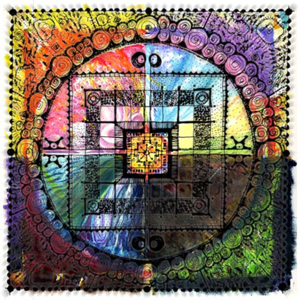Love and Infatuation
Love is acceptance. Infatuation is fascination.
Love and infatuation resemble fear: They can both paralyze and provoke rash action.
This view may surprise many Westerners, we treasure a deep conviction that love is a virtuous emotion. But love is neutral unless we act on it. It’s easy to love someone and do nothing about it. It’s easy to hate someone and do nothing about it.
Unless we act upon our emotions: love, hate, fear and hope – they all have the same value.
Emotions are worthless, in and of themselves. Their virtue or lack of virtue depends entirely on how we act upon them.
To act on love means to treat someone with genuine affection and to accept his or her “faults”. The perception of faults is entirely subjective. Whenever I use the word “faults”, I’m speaking figuratively – no one actually has faults, but we often interact as if faults are inherently real and permanent.
Infatuation acts impulsively, with expectations.
When two people tell each other they love each other, what is really happening, what are they really saying?
It depends on whether both people understand the word “love” similarly. This is worth discussing together; that conversation might save both of people from a lot of heartache in the future.
If we mean that we accept each others’ faults, it’s helpful also to acknowledge this: we can only accept the faults that we’ve seen. So, each time we tell someone we love them, we’re affirming that we accept everything we’ve seen so far.
If you wake up one morning filled with loving acceptance of everything you know about your partner, and find out later in the day that they have a fault that you didn’t know about that morning (an affair, an addiction, a hidden life, etc.), you might want to consider that before you say “I love you” in the evening. This is true even in a marriage. Marriage is essentially a business deal in today’s Western culture. Love does not necessarily come as part of the deal (More about that elsewhere…).
Faults abound in relationships; when we try to act as if “faults” are not present, that isn’t genuine affection.
We tend to base our affections on an ideal of experience that does not have realistic or forgiving expectations. When we have expectations that are not quite realistic, we experience disappointment in love. When we accept others’ having faults, we perform an act of kindness that creates a powerful potential: others will accept us with our faults.
Infatuation is when you’re enamored with someone else’s apparent qualities, and you see their characteristics as charming.
Infatuation makes the heart race, thrilled with the excitement of having made a new, intense personal connection. We focus on hope, and our head spins with our visualizations of how the relationship may develop.
In relationships, we may notice “new” characteristics in our partner at any moment.
What happens during a budding romance if we do not become enamored with our partner’s apparent characteristics? Because infatuation – alone – does not include acceptance, and it can quickly turn into disinterest or worse. If we’re fortunate, we end up with a nice friendship.
Developing infatuation keeps happening even if we already love someone. We’re always learning new things about each other, and love tends to grow deeper as faults appear and we accept them continuously.
Continual infatuation develops easily… When two people love one another, the infatuation is also usually mutual.
Yes, that sounds a little contradictory. Consider this: once we accept our loved-one’s faults, those “faults” become endearing qualities that continue to enthrall us.
The more we explore what love and infatuation really involve, we understand more deeply the dynamic gift that we receive when we enter a relationship with another person. The dance of relationship often cycles through overlapping layers of love and infatuation, each feeding the other. If we view our relationships this way, we can also more easily take a long-term view of how to act in them.
Love and infatuation can manifest one-sidedly in many ways.
We may have a life-partner, friend, or relative with whom we can talk regularly, and navigate the swirling terrain together. We may be “on our own” in the situation, valiantly trying offer our best to the relationship while the other person appears disinterested. From either side, the choices of acceptance and expectations present themselves throughout the relationship, and we want to know how to act.
There’s no pat answer, because we are all so different from one another, and circumstances change constantly. The most reliable action plan understands that we all long for a combination of acceptance and titillation. If we can keep those desires balanced, the dance flows on, and we grow and learn from each other.
We can learn to love and crush – without crushing each other.



A very nice post Leslee. It gives one a lot of to think about. It is interesting how Dharma, plays a part in all aspects of our lives including relationships. You have managed to infuse the teaching with everyday life experiences. Which I guess is the true meaning of Dharma. You are a very informed and intutive woman, I appreciated your every verse.
Thank you, Walter, as always, for your kind and insightful comments!